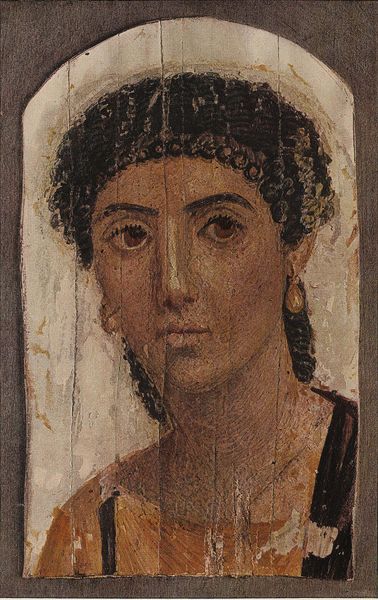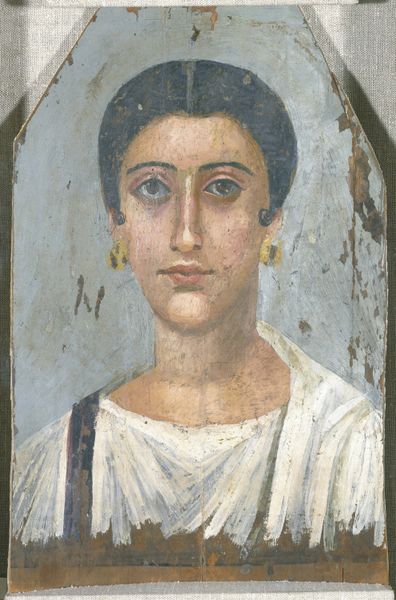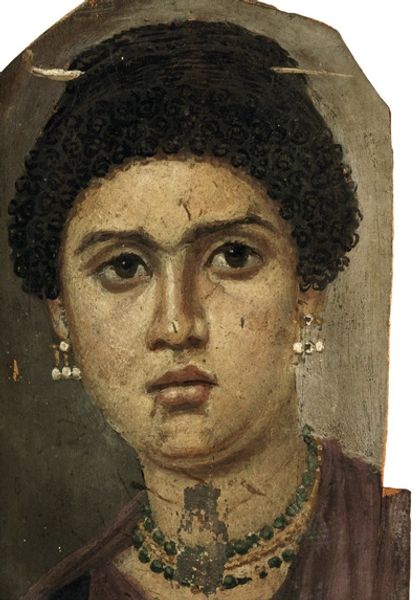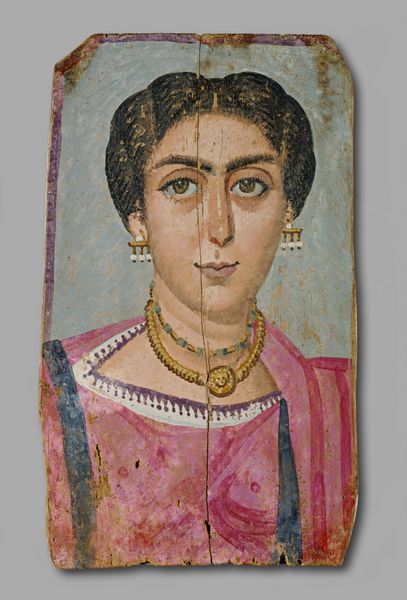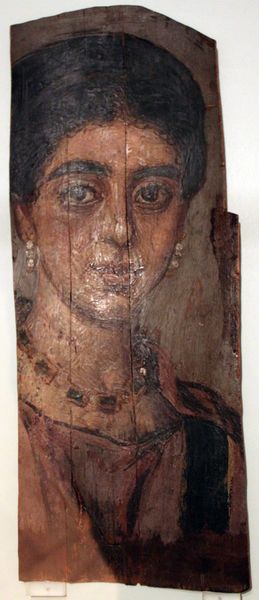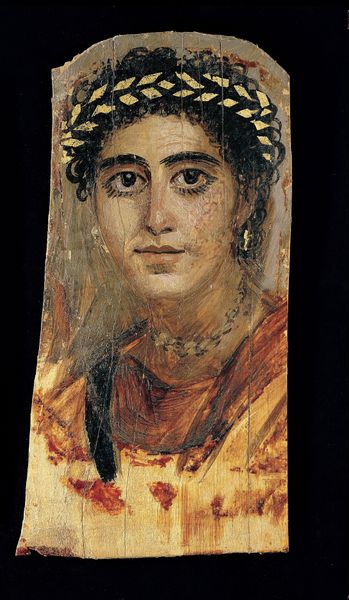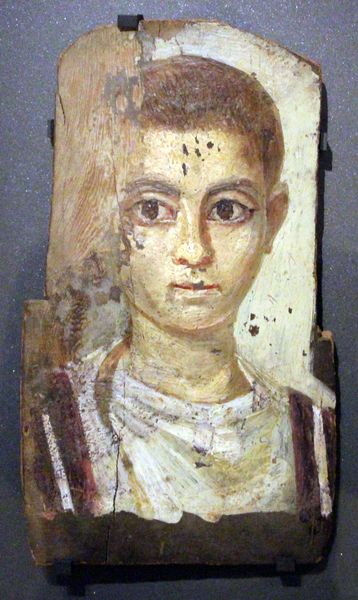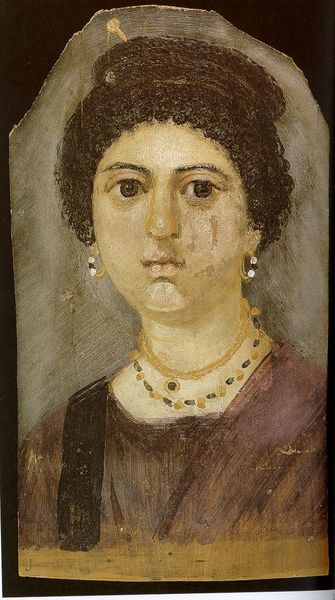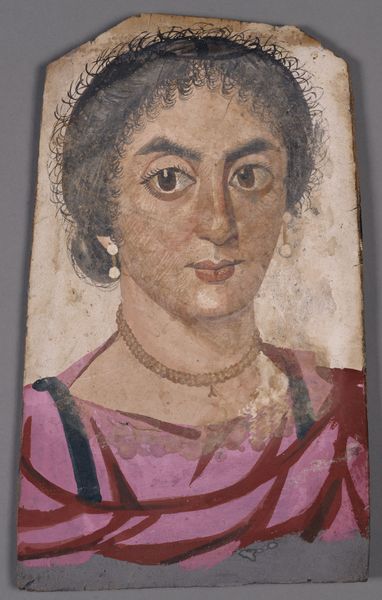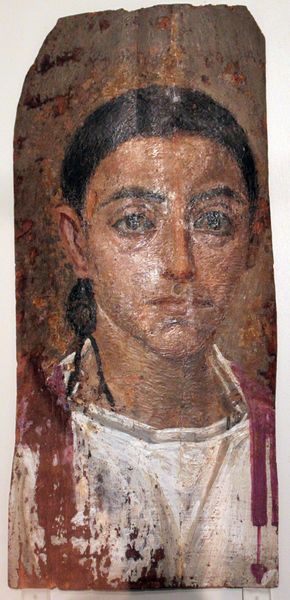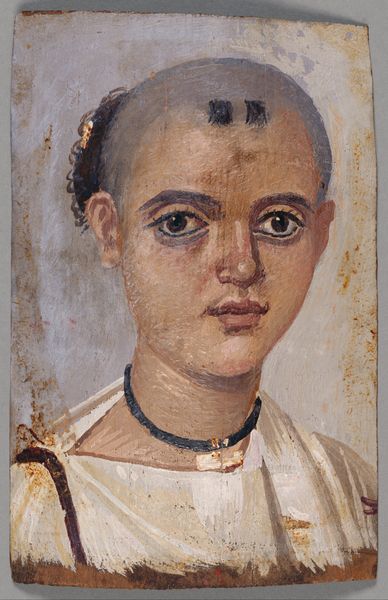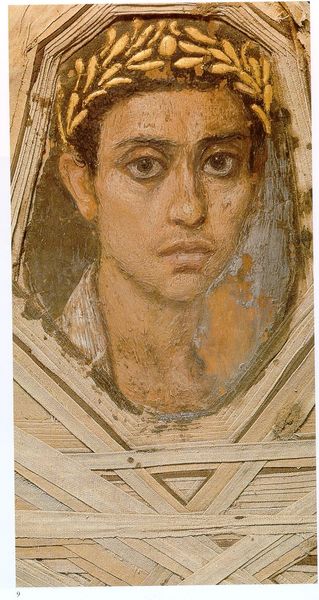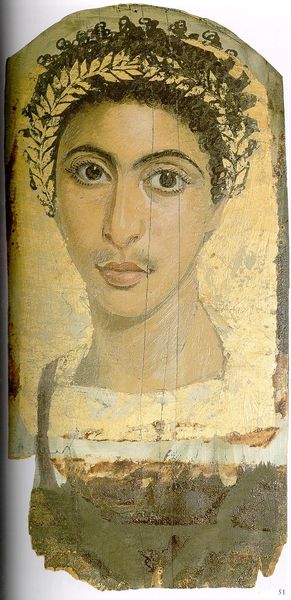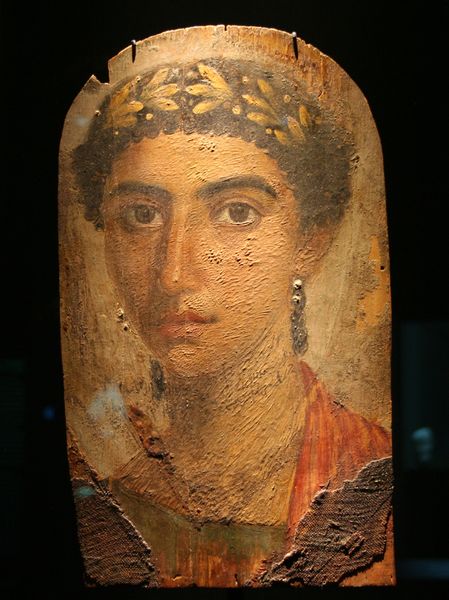
tempera, painting
#
portrait
#
tempera
#
painting
#
ancient-egyptian-art
#
geometric
#
ancient-mediterranean
#
miniature
#
realism
Copyright: Public domain
This panel painting of a young woman, with encaustic on wood, was made in Roman Egypt sometime between 50 and 250 AD. These so-called “Fayum portraits” are a fascinating product of cultural exchange. Painted in a naturalistic style that reflects Greco-Roman artistic conventions, they were funerary portraits intended to be placed over the faces of mummified bodies. The gilded wreath suggests the woman may have been given the honor of a public crown during her life. Such rewards were common in the Roman Empire. In a place like Roman Egypt, we see a hybrid society of Roman rulers and Egyptian subjects. How did the conventions of Roman Imperial representation filter down through the social strata of this place? How did the cultural traditions of ancient Egypt persist under Roman rule? To know more, look to archaeological records to tell us about the society, economy, and artistic institutions of Roman Egypt. Only with careful study can we understand this artwork as the product of a specific time and place.
Comments
No comments
Be the first to comment and join the conversation on the ultimate creative platform.
